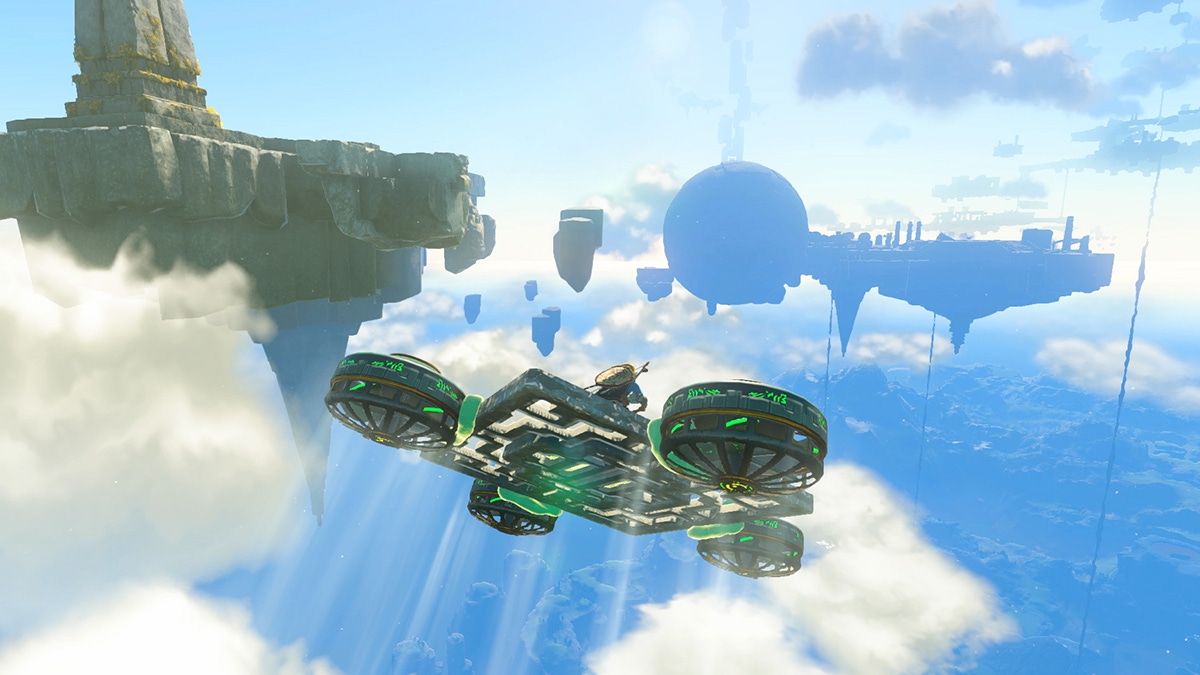Tears of the Kingdom devs hoped to deliver an Eternal Sunshine moment
Blessed are the forgetful.

Tears of the Kingdom whisks players back to the sprawling iteration of Hyrule introduced in Breath of the Wild for another open-world adventure, but this time things are a little different.
Floating islands drift overhead, beckoning players to explore the heavens; vast chasms have appeared across the land, unleashing a horrifying Gloom upon Hyrule; and a near-fatal encounter has granted Link strange new powers that allow them to manipulate ancient relics, alter the flow of time, meld through objects, and build crackpot contraptions.
It's a sequence of events that means this version of Hyrule feels both immediately familiar and distinctly fresh, and according to franchise producer Eiji Aonuma and director Hidemaro Fujibayashi–speaking to The Verge–that was precisely what the dev team set out to achieve.
After the success of Breath of the Wild, which has sold almost 30 million copies worldwide, Fujibayashi and the team received messaged from fans saying they wished they could erase their memories of the game and start all over again.
It'll be a familiar sentiment to anybody who's found a slice of media–be it a novel, movie, video game, or album–that resonates profoundly. The desire to experience something we adore through fresh eyes is an irresistible notion, and Aonuma and Fujibayashi set out to instill a sense of tabula rasa by handing players new mechanics that would let them see Hyrule from a completely different perspective.
Same world, new beginnings
"In developing this game, one of our main goals—especially for fans who have played and put a lot of time into Breath of the Wild—was for them to feel the same kind of excitement and to be just as moved by Tears of the Kingdom as they were by Breath of the Wild," says Fujibayashi. "We really wanted to provide an experience that’s really new so that people who have spent a lot of time in Breath of the Wild, when they come back, they can say, “You know, I really felt as if I had lost my memories of Breath of the Wild.'"
That's where the ability to combine objects came in. Aonuma explains it was one of the very first mechanics the team started building, and while there are usually some reservations about whether or not a project is heading in the right direction during those early stages, seeing clips of players cobbling together makeshift contraptions in Breath of the Wild quickly dispelled those concerns.
"Seeing those [videos] charged us up with the energy to put even more of those types of elements into Tears of the Kingdom and to fill the game with more and more tools that would surprise people and allow them to find their own playstyle and feel that uniqueness in playing the game their way," says Aonuma, who adds that he wants players to think "proactively" about what might be possible in the game.
Fujibayashi adds that Breath of the Wild did a lot of the heavy lifting in teaching players how physics behave in this version of Hyrule, letting the dev team blow the doors off from the outset in Tears of the Kingdom.
"There were a lot of ideas we felt we could have added to Breath of the Wild but might not have been as fun. But with the sequel, because we’re going back to the same world, we thought this might be the great opportunity to add these things in," continues Fujibayashi. "It’s the concept of going to some place that you’re super familiar with; you know, where you’ve been, and yet being able to experience new gameplay because of these new uses of the physics engine. That’s something that was present in the very early stages of planning for this project."
You can hear more about the development of Tears of the Kingdom by reading The Verge's full interview with Aonuma and Fujibayashi.
About the Author(s)
You May Also Like







.jpeg?width=700&auto=webp&quality=80&disable=upscale)








